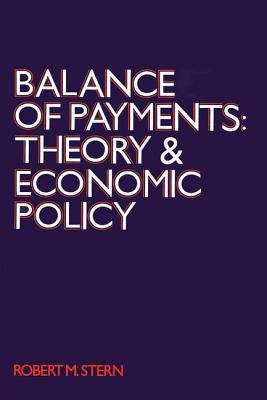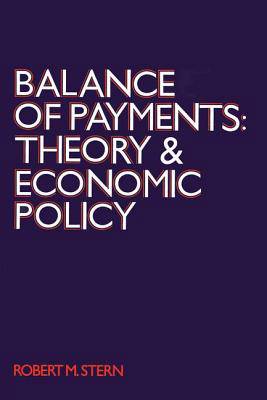
- Afhalen na 1 uur in een winkel met voorraad
- Gratis thuislevering in België vanaf € 30
- Ruim aanbod met 7 miljoen producten
- Afhalen na 1 uur in een winkel met voorraad
- Gratis thuislevering in België vanaf € 30
- Ruim aanbod met 7 miljoen producten
Omschrijving
An original and systematic synthesis of the major postwar developments in theory and policy of balance-of-payments adjustment, this book focuses on the present-day system of pegged-but-adjustable exchange rates and the problems that policy authorities must face if they are to attain full employment, price stability, balance-of-payments equilibrium, and a satisfactory rate of economic growth. The dominate theme of this book is that any system of exchange rates carries with it assumptions about the way it works and how effective the automatic and policy-motivated forces operate to bring about equilibrium in a country's balance of payments. By analyzing balance-of-payments adjustment and policies under alternative exchange-rate systems, and with different assumptions concerning the level of employment and prices, it is possible to embrace a wide variety of contemporary and historical circumstances experienced by individual countries and the world as a whole. In this way the author assesses the economic consequences of the different exchange-rate systems and of the policies that countries may follow to attain their national objectives. In particular it appears to Professor Stern that the international monetary turmoil of the past ten years can be traced to the exchange-rate inflexibilities of the adjustable-peg system and to the creation of excessive reserves under the dollar standard. He demonstrates that the international monetary system must be redesigned to permit greater exchange-rate inflexibility and control over the creation of new international reserve assets.
Specificaties
Betrokkenen
- Auteur(s):
- Uitgeverij:
Inhoud
- Aantal bladzijden:
- 454
- Taal:
- Engels
Eigenschappen
- Productcode (EAN):
- 9780202308937
- Verschijningsdatum:
- 15/01/2007
- Uitvoering:
- Paperback
- Formaat:
- Trade paperback (VS)
- Afmetingen:
- 161 mm x 227 mm
- Gewicht:
- 612 g

Alleen bij Standaard Boekhandel
Beoordelingen
We publiceren alleen reviews die voldoen aan de voorwaarden voor reviews. Bekijk onze voorwaarden voor reviews.











